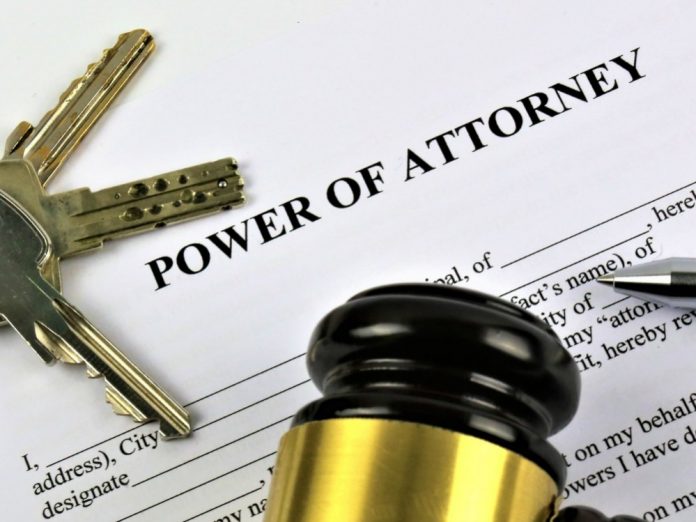The answer is always ‘YES’ according to Renee Stevens from SRM Lawyers (located in Lane Cove). Renee is ITC’s legal eagle and she gives us the run down on why you absolutely positively should have a Power of Attorney. Take it away Renee….
You may not need a Power of Attorney now, but it is important that you make a power of attorney before it is actually needed!
What is a Power of Attorney?
A power of attorney is a legal document appointing a person of your choice to manage your financial and legal affairs while you are alive. It ceases to have effect upon your death. A power of attorney should be considered by anyone over the age of 18 with the mental capacity to fully understand what they are signing.
Your appointed attorney can act in respect of your money, bank accounts, shares, real estate, and other assets but can’t make decisions about your lifestyle, medical treatment or welfare. Those decisions are covered by the appointment of an Enduring Guardian.
Two Types of Power of Attorney
There are two types of power of attorney:
- a general power of attorney is usually for a short-term appointment, say if you are having an operation and want someone to manage your financial affairs while you’re recovering, or you need someone to act on your behalf in relation to a one-off transaction, such as the sale of a property. It ceases to have effect if you lose your mental capacity;
- an enduring power of attorney is for a lifetime appointment and will still operate in the case of mental incapacity.
In both cases, the power of attorney will only cover your financial affairs and only operates while you are alive. You shouldn’t assume that your partner or ‘next of kin’ will be able to take care of things if you’re not able to. Banks, insurance companies, health funds and other institutions have strict privacy measures in place and won’t speak to you, as another person’s informal representative, if proper protocols haven’t been met.
Consider this example. Matthew and Bianca are in their early 30’s. Bianca is pregnant with their first child. Matthew is self-employed as a builder. Some months ago, Matthew was involved in a car accident and has been in a coma since. His future is uncertain. Bianca is concerned about ongoing medical expenses and their mortgage repayments going forward and decides to sell their large house for something less expensive. As Matthew and Bianca had previously prepared enduring powers of attorney in favour of each other, Bianca is able to sell their house (which is in both of their names) without any delay or court order.
Choose the Best Person for The Job
An attorney can do anything with your property and money that you’re able to do, so it’s important that you choose someone you can trust to look after your affairs. You can appoint more than one person and can specify whether the attorneys must act jointly (making all decisions together) or jointly and severally (either making decisions together or individually). Whilst partners and adult children are commonly appointed, trusted friends, siblings, grandchildren, nieces or nephews may also be appropriate. In deciding who to appoint, you should consider qualities such as the ability to manage financial and property-related matters, availability and physical proximity.
If no family member is suitable or available, an independent third party such as the NSW Trustee & Guardian, a trustee company, or a professional such as a solicitor or accountant can be appointed as your attorney, but they will be entitled to charge for their services.
With Great Power Comes Greater Responsibility
‘Inheritance impatience’ is a driver of elder financial abuse and often occurs when family members misuse their powers in their role as attorney. Your attorney must always act honestly and avoid conflicts between their interests and yours. They must keep your money and property separate from their own and act in your interests at all times. Having a power of attorney in place doesn’t mean that you lose your right to operate bank accounts, deal with real estate or exercise any other rights that you have while you continue to have the mental capacity to do so.
Restrictions and conditions can be placed on your attorney’s powers, and you can choose when it comes into effect. Your power of attorney can be cancelled at any time, provided you have the mental capacity to make that decision.
Don’t Put it Off
You never know what the future may bring. Although mental incapacity may not be a foreseeable issue, you might regularly travel, require major surgery, or simply don’t want to personally manage aspects of your affairs. If you don’t have a power of attorney in place and subsequently lose capacity, there will be nobody with legal authority to manage or make decisions about your property and finances. A court application for the appointment of a financial manager may be needed, who will not necessarily be the person you would have chosen.
SRM Lawyers are happy to assist you with a Power of Attorney.

Contact Details
SRM Lawyers
Address: Level 1, 102-104 Longueville Road
Website: SRM Lawyers
Phone: 02 9188 9631
Michael Stevens
Lawyer
Mobile – 0419 257 392
Email – [email protected]
Renee Stevens
Lawyer
Mobile – 0410 466 286
Email – [email protected]
Linked In: SRM Lawyers
This is advice of a general nature, this article does not constitute legal advice and is not meant to be complete or exhaustive.
This is a sponsored post. SRM Lawyers are ITC Sponsors. Thank you to all our ITC Sponsors who support ITC. This support enables us to fund our website and our community work.













